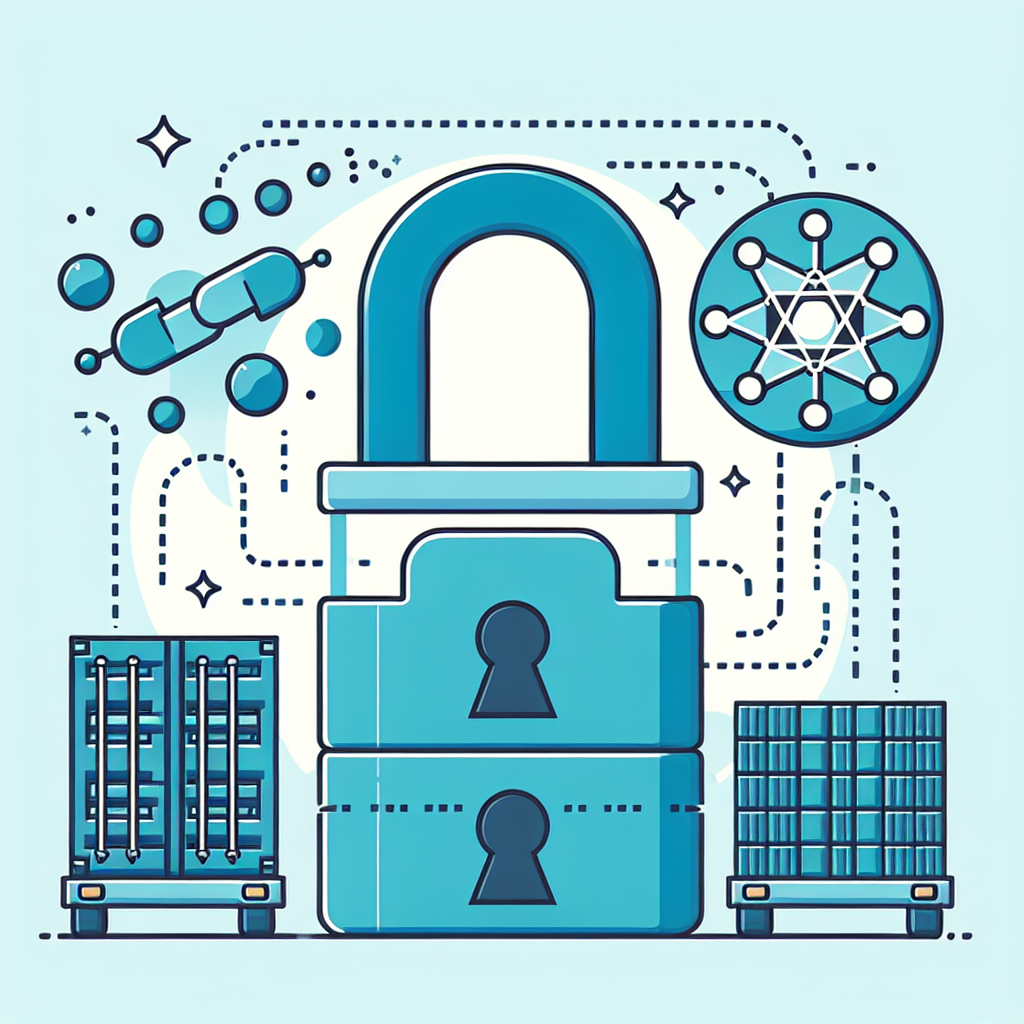Introduction to Smart Contracts in Supply Chains
Ever wondered how smart contracts are reshaping supply chains? Well, these amazing digital contracts are transforming the way supply chains function by enhancing transparency and cutting through inefficiencies. Let’s dive into what smart contracts are all about and explore how they automate operations, ensuring each transaction is securely recorded on an immutable ledger accessible to everyone in the network.
What is a smart contract? A smart contract is a self-executing digital contract written in code and stored on a blockchain, executing predefined actions once agreed conditions are met.
Unlike traditional contracts that require intermediaries, smart contracts operate in an automated and trustless environment. They execute tasks across the supply chain without the need for human intervention, bridging the communication gap between various stakeholders. Each step in the process is automatically verified and documented, ensuring no discrepancies can sneak in unnoticed.
Breaking Down the Basics of Smart Contracts
To truly appreciate smart contracts’ role in improving supply chain transparency, we must first understand their fundamental nature. Smart contracts are written in blockchain-specific languages such as Solidity (for Ethereum) and execute when specific conditions coded into them are met. Imagine having a digital helper that ensures every agreement is fulfilled exactly as per the terms set, without anyone ever missing a beat!
- Automatic Verification: Each transaction on a blockchain is publicly recorded and verifiable, cutting down on unauthorized alterations.
- Cost-Effectiveness: Eliminating middlemen reduces transaction costs and speeds up processes.
- Trustless Operations: The transparent nature of blockchain ensures that smart contracts cannot be tampered with, thus boosting trust among parties involved.
- Enhanced Security: As data is on a distributed ledger, security breaches are minimized and any attempts to alter information are easily detectable.
Take, for example, the food safety industry, which benefits significantly from blockchain’s ability to trace products’ journeys through supply chains in real-time. Each product movement is documented in a block, tracking from source to destination, and providing a clear lineage for each piece of inventory.
The Role of Smart Contracts in Revolutionizing Supply Chain Management
Smart contracts usher in a new era of operational efficiency by ensuring that compliance, record-keeping, and communication protocols are adhered to in a consistent manner. With real-time updates and verifiable records, the level of transparency these contracts afford is unmatched in traditional systems.
How do smart contracts improve supply chains? Smart contracts improve supply chains by enabling automated, transparent, and secure transactions that build trust and eliminate inefficiencies.
Furthermore, because these digital agreements are coded directly onto the blockchain, the chance of fraud is significantly reduced. Employing blockchain technology makes it nearly impossible to alter or falsify records without being detected, thus offering an additional layer of security.
Practical Applications and Industry Impacts
Imagine the revolutionary potential smart contracts hold for various industries. Whether it’s making transactions in DeFi more secure or managing logistics for vast supply chains, adopting these digital agreements leads to significant advancements in efficiency and transparency.
- Streamlined Operations: Smart contracts help eliminate paperwork and manual processes, reducing time and human error in handling supply chain activities.
- Reliable Data: The immutability of blockchain ensures that once data is recorded, it remains unaltered and fully secure—enhancing confidence in the data provided.
- Simplified Payments: Automated trigger-based payments facilitate smoother transactions, directly decreasing bottlenecks associated with traditional payment systems.
The integration of smart contracts and blockchain technology not only simplifies but also stabilizes supply chain processes, making it the quintessential element in evolving global logistics management.
This HTML content is ready for integration into a WordPress platform using Zapier, and includes structured and engaging content with optimized SEO features and relevant internal links.
Enhancing Traceability and Provenance
Real-Time Tracking Benefits
Imagine a world where every step of a product’s journey is crystal clear, where transparency is no longer just a buzzword but a reality. That’s exactly what smart contracts offer for supply chains, especially when integrated with blockchain technology. In Africa and beyond, where the demand for transparency and traceability is soaring, smart contracts serve as the backbone of a revolutionized supply chain.
By leveraging smart contracts, each stage of product movement is meticulously recorded in real time. This not only enhances traceability but also provides significant advantages, such as improved product provenance. This offers peace of mind to consumers by allowing them to track the origins of products at any given time. Consider the impact this has in industries with stringent requirements like pharmaceuticals, where verifying product authenticity can be a matter of life or death.
What is product provenance? Product provenance is the record of a product’s history, providing assurance of its authenticity and ethical sourcing. It is especially crucial for businesses that prioritize transparency and sustainability.
When it comes to supply chain disruptions, whether due to recalls or fraud, smart contracts offer a quick resolution tool. Imagine quickly identifying a defective batch of goods and tracing them back to the source in seconds. That’s the power of real-time tracking—faster than finding a needle in a haystack, right?
- Quick Resolution: With smart contracts, supply chain players can swiftly manage recalls by identifying affected batches and tracking them back to their origins.
- Fraud Prevention: Every transaction and movement is recorded, making it extremely difficult for malicious actors to tamper with records without being detected.
- Improved Consumer Trust: Providing customers with a reliable source of truth creates confidence in your brand, encouraging loyalty and repetitive business.
Why is this more relevant now than ever? As the African digital economy burgeons, the need for transparent supply chain management becomes increasingly critical. Products such as $JARA—a token fueling Africa’s growth—highlight the necessity of smart contracts to verify and track the digital economy’s contributions.
“Jara- Unlocking the Future to Africa’s Crypto Ecosystem through unparalleled transparency and asset tokenization.” – Bringing trust and reliability into the digital and physical supply chains.
In essence, smart contracts are not just a luxury but a necessity for future-forward businesses aiming to stay competitive. Whether it’s preventing fraud or increasing efficiency, the verifiable nature of blockchain technology combined with automated smart contracts ensures a secure, transparent environment for all stakeholders involved.
Take a moment to envision a future where your favorite African coffee brand lets you trace every bean’s journey from the farm to your cup, thanks to the use of blockchain technology. Wouldn’t you want to be a part of that revolution?

Reducing Fraud and Improving Efficiency
In the fast-paced world of supply chain management, the integration of smart contracts represents a significant turning point. These digital agreements work tirelessly to reduce fraud and enhance efficiency, bringing unparalleled transparency to processes that were once enveloped in complexity and paperwork. Imagine a world where every transaction is not only transparent but also tamper-proof—this is the world that smart contracts aim to create.
How Smart Contracts Minimize Fraud
Smart contracts operate on blockchain technology, which is inherently secure and immutable. But how do these contracts actually prevent fraud? Let’s delve into it. Each transaction processed through a smart contract is recorded on a blockchain, rendering the data unchangeable once it has been written. Any attempt to alter or fabricate information becomes highly visible across the network, thereby deterring fraudulent activities.
What are smart contracts? Smart contracts are automated, self-executing contracts with the terms of the agreement directly written into code. They execute actions automatically when specified conditions are met, ensuring absolute precision and mitigating the risk of errors or fraud.
For example, consider a supply chain fraud scenario where a party might attempt to manipulate delivery times to falsely claim earlier completion dates. With smart contracts, the delivery confirmation is automatically recorded upon receipt, and the timestamp is distributed across the blockchain network. If someone tries to alter the delivery time, the discrepancy becomes immediately apparent to every stakeholder, making fraudulent claims easy to identify and address.
Streamlining Operations and Enhancing Efficiency
Beyond just fraud prevention, smart contracts are powerful tools for streamlining supply chain operations. The traditional supply chain often relies on lengthy paperwork and multiple hands-on processes that are susceptible to human error. Here’s where smart contracts shine—they eliminate the need for manual approval processes by automatically executing agreed-upon actions when preset conditions are met.
- Automated Payments: Payments to vendors can be triggered automatically upon delivery verification, cutting down on processing times and errors.
- Document Automation: Important documents such as bills of lading or customs declaration can be generated and validated automatically, ensuring accuracy and compliance.
- Real-Time Tracking: Supply chain stakeholders can gain access to up-to-the-minute updates on the status of shipments, enabling proactive decision-making and reducing delays.
- Resource Allocation: By pre-defining resource needs in a smart contract, businesses can optimize inventory management and resource allocation.
This high level of automation provided by smart contracts leads to an overall increase in efficiency and a reduction in operational costs. Moreover, it allows for more accurate data collection, which in turn supports better decision-making and strategic planning.
Real-World Impact in Africa’s Supply Chains
Within the dynamic context of Africa’s digital economy, companies like Jara are harnessing smart contracts to revolutionize supply chain management and foster global investment in African assets. As Africa continues to grow and integrate technology into its economic infrastructure, smart contracts play a crucial role in bridging digital gaps and establishing trust among international and local stakeholders.
“Jara- Unlocking the Future to Africa’s Crypto Ecosystem.”
The decentralized nature of smart contracts supports the transparency and traceability that are so essential in the region’s supply chains. By digitally recording every transaction on a secure blockchain, these contracts help ensure that investment flows into Africa are effectively managed and transparently deployed, minimizing the risk of fraud and inefficiency.
The use of smart contracts in supply chain management is not just an abstract or aspirational concept. It is a practical, deployable solution at the forefront of the technological transformation sweeping across Africa’s economic landscape. By leveraging these innovative tools, regional businesses stand to gain significantly in both operational efficiency and competitive advantage on the global stage.
Challenges of Implementing Smart Contracts in Supply Chains
Technical and Integration Barriers
Smart contracts promise to revolutionize supply chains by enhancing transparency, efficiency, and accountability. However, implementing these digital agreements is not without its challenges. Let’s delve into some of the technical and integration barriers companies face and explore strategies to overcome them.
What are smart contracts? Smart contracts are self-executing contracts with the terms of the agreement written into code, enabling automatic execution when certain conditions are met.
One major hurdle is the technical complexity involved in creating smart contracts. Unlike traditional contracts, smart contracts require a deep understanding of programming and blockchain functionality. Businesses need skilled developers who can write code that accurately reflects legal agreements while accounting for all possible scenarios. This can be intimidating, especially for companies new to blockchain technology.
Furthermore, smart contracts must integrate seamlessly with existing supply chain systems. Many companies still rely on traditional contracts and legacy systems that aren’t initially compatible with blockchain technology. Integration requires not only technological updates but also a rethinking of existing processes. This can be costly and time-consuming, leading to hesitation in adopting smart contracts.
- High Initial Costs: Transitioning to smart contracts involves significant initial costs, including purchasing new hardware, software, and professional training. While costly, thoughtful investment in blockchain technology can offer long-term savings and efficiencies.
- Industry-Wide Adoption: For smart contracts to reach their full potential, widespread industry adoption is crucial. Isolated use within one company limits benefits, as smart contracts thrive on network effects, where many participants are interconnected.
- Data Privacy Concerns: Storing sensitive supply chain information on a public blockchain raises privacy concerns. Companies need assurance that their data is secure through encrypted blockchain networks and stringent access controls.
Despite these challenges, strategies are emerging to ease the transition to smart contracts. Collaborative efforts among industry players can drive standardization, ensuring different systems can communicate and interoperate. Furthermore, upskilling current employees or hiring new talent with expertise in blockchain can mitigate integration issues. Legal frameworks are also adapting, with an increasing focus on how smart contracts align with existing laws and regulations.
Ultimately, while smart contracts pose challenges, their potential benefits to supply chains are too significant to ignore. With the right approach, companies can overcome these barriers, paving the way for more transparent, efficient supply chains that align with the digital future.

How do smart contracts benefit supply chains?
Smart contracts benefit supply chains by automating transactions, enhancing traceability, reducing fraud, and improving efficiency. They offer a tamper-resistant blockchain that ensures every transaction is transparent and securely recorded.
What are the challenges in adopting smart contracts for supply chains?
The challenges in adopting smart contracts in supply chains include technical complexity, the need for system integration, and industry-wide adoption hurdles. Addressing these challenges is crucial for realizing the full potential of smart contracts.
How do smart contracts enhance traceability in supply chains?
Smart contracts enhance traceability by recording every stage of a product’s journey in a transparent, immutable ledger. This increases accountability, helps resolve issues like recalls quickly, and fraud is minimized.
What does the future hold for smart contracts in supply chains?
The future of smart contracts in supply chains is promising, with potential for widespread adoption improving efficiency, transparency, and security. This transformation can lead to industry-wide shifts toward more sustainable practices and innovations.

Related Practice Areas
Explore our diverse expertise to find related practice areas that align with your interests.
Discover What Our Clients Are Saying
At the forefront of our Smart Contracts & Automation practice is a deep-seated commitment to client satisfaction. Each case is handled with utmost care, as echoed in the appreciative feedback from those we represent.

Explore the Future of Your Supply Chain with Jara
Unlock the benefits of smart contracts in your supply chain by partnering with Jara. Our experienced team is ready to guide you through the process of integrating these revolutionary technologies to enhance transparency and efficiency in your operations. Why wait to transform your supply chain? Visit our website or download the Jara app today for Android or iPhone. Experience the change smart contracts can bring to your business landscape.
Your journey towards a transparent supply chain starts now. Let Jara help you bridge the gap between global capital and African assets with innovative solutions.
How Smart Contracts Improve Supply Chain Transparency
Understanding Smart Contracts in Supply Chains
Smart contracts are digital agreements that automatically execute actions based on predefined conditions. Within supply chains, they are revolutionizing the way companies handle transactions and process data. By leveraging blockchain technology, these contracts ensure transparency and integrity at every stage of the product journey.
Benefits of Smart Contracts
- Enhanced Transparency: Blockchain provides an immutable record of transactions, making information open and accessible to all stakeholders.
- Cost-Effective Operations: Automating processes reduces the need for intermediaries, lowering overall operational costs.
- Faster Transactions: Smart contracts facilitate quicker execution by eliminating manual processes and paperwork.
Implementing Smart Contracts in Supply Chains
Implementing smart contracts involves integrating blockchain technology with existing supply chain management systems. This integration ensures that all parties adhere to the same standards and protocols, mitigating risks and enhancing reliability.
“Your efficiency, our innovation – blending technology with trust to redefine supply chain transparency.”
Case Studies and Real-World Applications
Many businesses are already reaping the rewards of smart contracts. For instance, food and beverage companies use them to track the journey of products from farm to table, ensuring compliance with safety standards.
Challenges and Considerations
Despite their advantages, smart contracts come with challenges like the need for technological infrastructure and expertise. Nonetheless, the long-term gains often outweigh initial implementation hurdles.

















